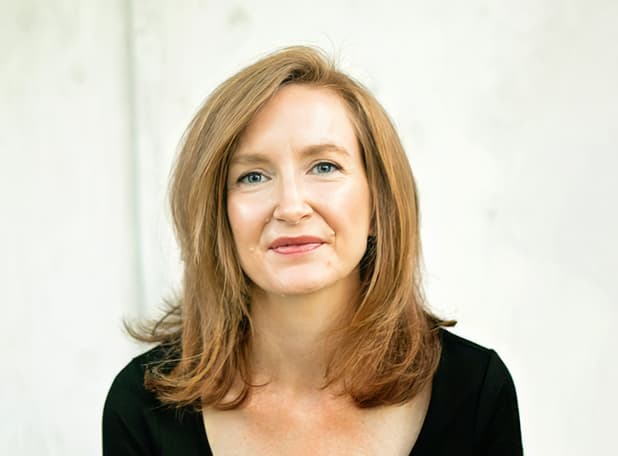Spotlight On: Nancy Reddy
 Galloway, N.J. – Nancy Reddy, assistant professor of Writing and First-Year Studies, received some exciting news recently. Reddy, who has taught at Stockton since 2015,
learned she was awarded an Individual Artist Fellowship from the New Jersey State
Council on the Arts.
Galloway, N.J. – Nancy Reddy, assistant professor of Writing and First-Year Studies, received some exciting news recently. Reddy, who has taught at Stockton since 2015,
learned she was awarded an Individual Artist Fellowship from the New Jersey State
Council on the Arts.
Reddy was named a Prose Fellow and received $13,200, part of the $1.7 million grant awarded to 161 artists across the state. The Fellowships are highly competitive and granted solely on independent peer panel assessment of work samples. The anonymous process is focused on artistic quality, and awards may be used to help artists produce new work and advance their careers.
Reddy sat down to discuss this award, her experiences as a writer, and how it all relates to her work here at Stockton.
How did you feel once you learned you were named one of the cohort members for this year’s Fellowship?
I was thrilled! I’d applied over the summer, but I’d forgotten entirely about it, so it was a lovely surprise.
What was the writing sample that won the award?
The writing sample that won the award is an excerpt from my next book, “The Good Mother Myth,” which will be published by St. Martin’s in the spring of 2025. It’s a book that uses personal narrative alongside the history of science and cultural criticism to investigate our bad ideas about what it means to be a good mom.
The sample I sent with my application is from the first chapter, which looks at the complex history of Harry Harlow, a mid-century psychologist whose research on maternal deprivation in rhesus macaque monkeys was a foundational part of attachment theory. (If you ever took an intro psych class, you probably have an image in your mind of a tiny monkey clinging to a cloth mother!) In the book, I uncover the long history of his research- conducted at the University of Wisconsin-Madison, where I went to graduate school—and find that it’s a lot more complicated than what we usually learn about it!
As a teacher and a writer, I’m obsessed with the [writing] process—how do we shape our ideas, how do we get started, and what techniques can help us revise and grow—and I bring that lens into my classroom.
How does receiving an award/grant benefit your work here at Stockton, and how do you see it supporting upcoming projects/work?
This award is a tremendous encouragement, particularly as I’m in the very final stages of editing “The Good Mother Myth.” Most of my training as a writer is in poetry and scholarly writing, so to have won this award specifically for creative nonfiction means a lot to me.
As a faculty member in the Writing and First-Year Studies program, what aspects of your experience and role at Stockton impact you the most?
I really think that anyone who’s teaching writing should also have an active writing practice. I’m so often giving my students the writing advice that I need, too—to not be afraid to get a messy first draft down, to ask for help, to step back and think critically about your organization and your argument. As a teacher and a writer, I’m obsessed with the process—how do we shape our ideas, how do we get started, and what techniques can help us revise and grow—and I bring that lens into my classroom.
What advice would you offer students who are aspiring writers?
It’s essential to read widely and not to be afraid of rejection. (I applied for this Fellowship last year, too, and didn’t win!)
What are some of your favorite books/writings?
Annie Dillard’s “The Writing Life” is a book I return to again and again. It’s a slim book, but it feels like an endlessly renewable resource. I’ve read it a ton of times, and sometimes, when I need encouragement, I’ll just flip it open to see what she has to say, and it always seems to help. I’ve just started reading a new book I’m really excited about, Catherine Ricketts’s “The Mother Artist: Portraits of Ambition, Limitation, and Creativity,” about the relationship between caregiving and creative practice.
Reported by Mandee McCullough
Photo submitted


